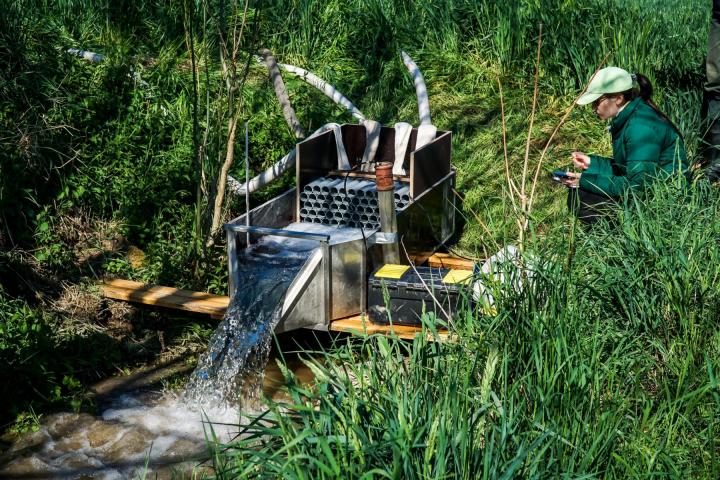
SHui is a multidisciplinary project with specific tasks for each team. "The priority is to involve top scientists from various fields from the participating countries. The individual topics are interconnected, linked and passed on, each team works in their own country and on their task, so that transdisciplinary research obtains data and information that one institution would never be able to provide, ”doc. Tomáš Dostál from the Department of Hydromelioration and Landscape Engineering at Faculty of Civil Engineering describes the uniqueness of the project.
Researchers from the Faculty are dedicated to hydrological and erosion modeling and lead a work package in which this topic is addressed. "We focus on the movement of water on the soil surface and in the soil, on its infiltration, and surface runoff. Mathematically, we then model both the possibilities of water retention in the landscape and soil damage, especially water erosion. At the same time, we focus on research into the movement of water in relation to how plants can use the available water. Where water is lacking, we look for ways to provide it for plants. ”
In addition to working in laboratories and on models, Czech scientists also travel to the fields. Field measurements are being carried out in cooperation with farmers. "We monitor flows in small river basins for a long time and measure soil moisture," explains doc. Tomáš Dostál. The experiments use a rain simulator, an experiment with an artificial flood wave also took place on a selected small stream. "For example, in coordination with Austrian and Spanish colleagues, we are studying the effect of surface roughness on water runoff. Now we are also preparing another experiment, taking advantage of the fact that the ponds will be without fish. We plan to repeat the experiment with the flood wave here, so that we can answer important questions about the nutrient cycle and the transport of sediments under different conditions. ”At the same time, data is being collected from Czech farmers to find out their views on water management. "We ask them about the acceptability of individual possible types of measures as well as the problems related to water scarcity. We work with large growers and small farmers to obtain the widest possible range of information, which is then evaluated for the entire project by the team of the University of Göttingen, Germany, "says doc. Tomáš Dostál from the Department of Hydromelioration and Landscape Engineering, Faculty of Civil Engineering.
The overall result of the research will be a set of technologies and tools to make informed decisions on how to manage water scarcity in European and Chinese agricultural landscape conditions, which are similar in some respects. At the same time, the aim of the SHui project is to consolidate an integrated research platform for the coming decades across the EU and China and to use each other's many years of experience as well as to share knowledge and data files that are extremely difficult to obtain.
The SHui project (European Commission Grant Agreement number: 773903), which is part of the H2020 program, began in 2018 and will end in September 2022. In the European part it is funded by the European Commission under Horizon 2020, the Chinese part is funded by the Chinese ministry for science and research (the Ministry of Science and Technology of the People's Republic of China). The project draws on expertise across different disciplines (agronomy, irrigation technology, digital agriculture, hydrology, soil and water protection, remote sensing, plant physiology and socioeconomics), across the EU and China. It involves 19 institutions, is run by the Spanish State Institute for Agricultural Landscape Research CSCI, and in addition to the Faculty of Civil Engineering of the Czech Technical University in Prague, Lancaster University in Great Britain, Beijing Normal University in China, KU Leuven in Belgium, Nanjing University in China or Hong Kong Baptist University in Hong Kong or the Greek private company TerraNova Ltd., focusing on the development of modern technologies for agricultural irrigation and the use of remote sensing methods. As a top partner in the field of irrigation outside the EU, the Agricultural Research Organization, which covers the development of irrigation systems in Israel, is also involved.
More information can be found at fsv.cvut.cz.